Maxwell P. Henderson
Synthetic weather radar using hybrid quantum-classical machine learning
Nov 30, 2021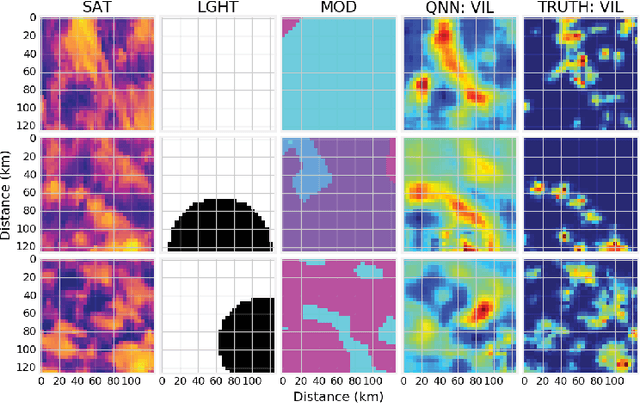
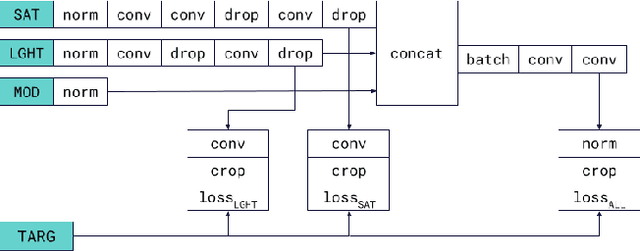
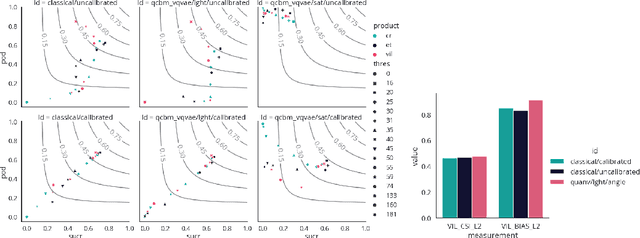

Abstract:The availability of high-resolution weather radar images underpins effective forecasting and decision-making. In regions beyond traditional radar coverage, generative models have emerged as an important synthetic capability, fusing more ubiquitous data sources, such as satellite imagery and numerical weather models, into accurate radar-like products. Here, we demonstrate methods to augment conventional convolutional neural networks with quantum-assisted models for generative tasks in global synthetic weather radar. We show that quantum kernels can, in principle, perform fundamentally more complex tasks than classical learning machines on the relevant underlying data. Our results establish synthetic weather radar as an effective heuristic benchmark for quantum computing capabilities and set the stage for detailed quantum advantage benchmarking on a high-impact operationally relevant problem.
Application of Quantum Annealing to Training of Deep Neural Networks
Oct 21, 2015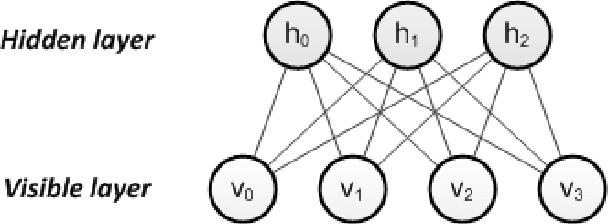
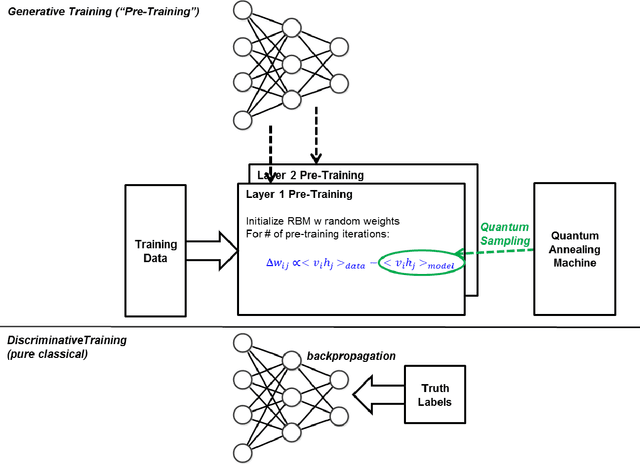
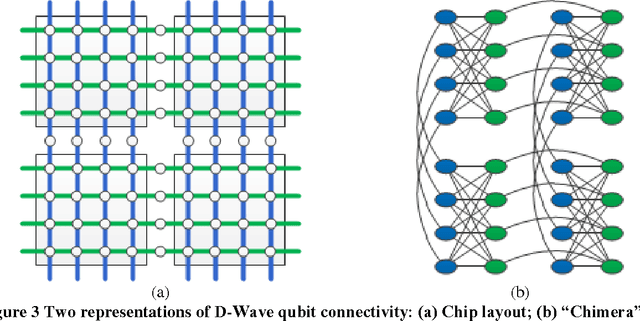
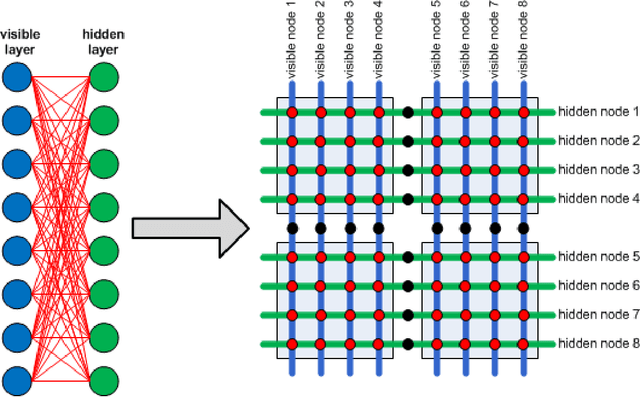
Abstract:In Deep Learning, a well-known approach for training a Deep Neural Network starts by training a generative Deep Belief Network model, typically using Contrastive Divergence (CD), then fine-tuning the weights using backpropagation or other discriminative techniques. However, the generative training can be time-consuming due to the slow mixing of Gibbs sampling. We investigated an alternative approach that estimates model expectations of Restricted Boltzmann Machines using samples from a D-Wave quantum annealing machine. We tested this method on a coarse-grained version of the MNIST data set. In our tests we found that the quantum sampling-based training approach achieves comparable or better accuracy with significantly fewer iterations of generative training than conventional CD-based training. Further investigation is needed to determine whether similar improvements can be achieved for other data sets, and to what extent these improvements can be attributed to quantum effects.
 Add to Chrome
Add to Chrome Add to Firefox
Add to Firefox Add to Edge
Add to Edge